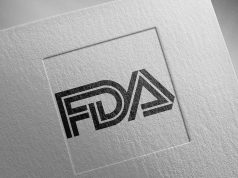Electronic nicotine delivery system use tied to gum bleeding
By Lori Solomon HealthDay Reporter
TUESDAY, Dec. 20, 2022 (HealthDay News) — Tobacco product use is associated with the incidence of several adverse oral health outcomes, according to a study published online Dec. 9 in JAMA Network Open.
Marushka L. Silveira, Ph.D., from the U.S. National Institutes of Health in Bethesda, Maryland, and colleagues examined associations between tobacco product use and the incidence of adverse oral health outcomes. The analysis included participants in the Population Assessment of Tobacco and Health Study.
The researchers found that cigarette smoking was positively associated with the incidence of gum disease diagnosis (adjusted hazard ratio [aHR], 1.33), loose teeth (aHR, 1.35), and one or more teeth removed (aHR, 1.43). There was a positive association observed between cigar smoking and the incidence of precancerous oral lesions (aHR, 2.18). Hookah smoking was associated with the incidence of gum disease diagnosis (aHR, 1.78), while use of electronic nicotine delivery systems was associated with the incidence of bleeding after brushing or flossing (aHR, 1.27). Snus and smokeless tobacco were not associated with oral health outcomes.
“This nationally representative cohort study confirmed associations of current combustible tobacco use with incidence of adverse oral health outcomes and also showed an association between current electronic nicotine delivery systems use and incidence of bleeding after brushing or flossing,” the authors write. “In addition to informing FDA’s tobacco regulatory actions, the findings emphasize the continued importance of tobacco cessation counseling and resources in clinical practice.”
One author disclosed financial ties to the pharmaceutical industry.
Copyright © 2022 HealthDay. All rights reserved.








